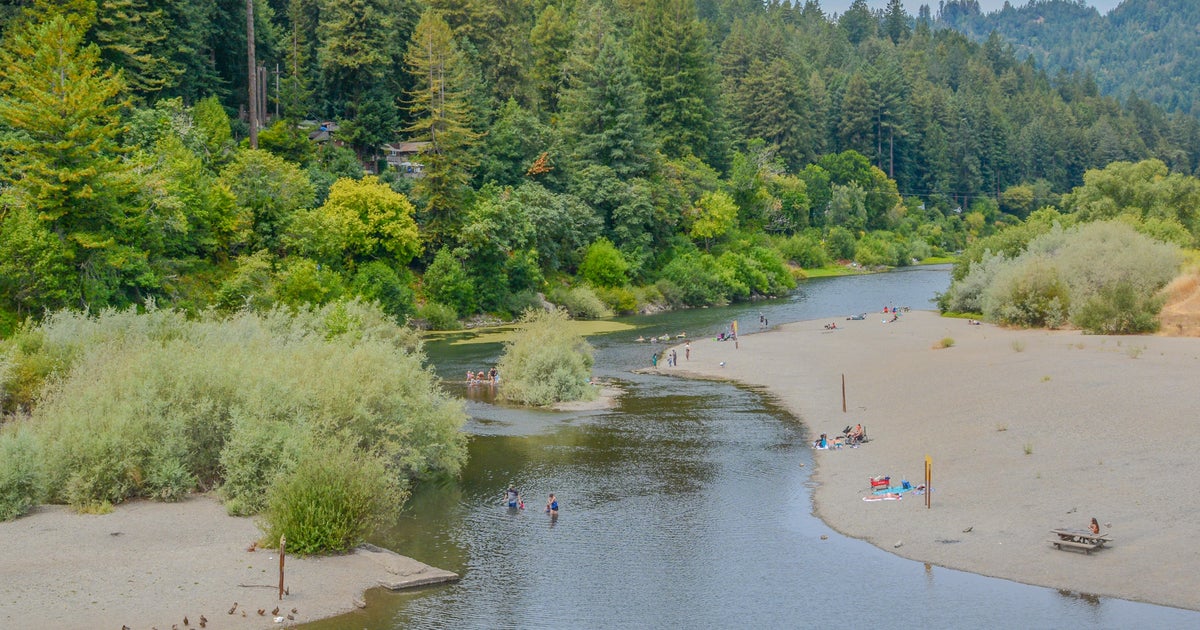Scientists: Whale Foraging For Fish Near Alameda For A Week Is Unhealthy
ALAMEDA (CBS SF) – A humpback whale that has been circling the waters near Alameda for a week appears to be unhealthy, a Marine Mammal Center spokesman said Monday.
The Marin Headlands-based center has been monitoring the whale, which seems to be an adult female with poor skin condition, since May 27 when it first received reports of its presence in Alameda's Airport Lagoon, center spokesman Giancarlo Rulli said.
ALSO READ: Feds To Investigate Gray Whale Deaths After NOAA Declares 'Unusual Mortality Event'
Rulli said experts at the center attributed the animal's unusually long stay in the Bay to its poor health, speculating it sought shelter from harsher open waters in the protective cove.
"This animal is skinny. It's emaciated and it seems to be a little weak, although it still has energy, still breaching, very active out there," said Marine Mammal Center Whale and Dolphin Research Associate Bill Keener. "That's why people need to be cautious in the area."
Scientists determined the whale has been feeding on fish in the cove, and said it has no plans to steward it out for fear of causing it stress.
For many people in the East Bay, the visiting whale provided a rare opportunity to see a large sea mammal from the shore.
Folks were excited to see the whale up close.
"Because I love whales. Yeah, I think they're tranquilizing, They're calming," said whale watcher Archie Richardson.
The humpback migration is just getting started, explained Marine Mammal Northern Range Operations Manager Ryan Berger.
"We're at the tail end of the grey whale migration and now we have humpback whales that are moving into our area," said Berger. "And they are here to stay. This is their feeding grounds. They'll be here likely through the fall."
Humpback whales have been spotted feeding on anchovies near the Golden Gate Bridge and Alcatraz for the past three years, Rulli said, but are usually quick to return to the open ocean.
Scientists at the center do not know whether the whale's poor body condition is related to the high number of gray whale deaths this year since the species' migration patterns differ significantly.
Rulli said he could not estimate how long the whale would remain in the Bay searching for food, but said center officials are "hopeful that since it found its way in it would eventually find its way out."
The Marine Mammal Center has asked people not to approach or crowd the whale and to call (415) 298-SEAL to report updates or documentation.
KPIX reporter Don Ford contributed to this story.
© Copyright 2019 CBS Broadcasting Inc. and Bay City News Service. All Rights Reserved. This material may not be published, broadcast, rewritten or redistributed.




